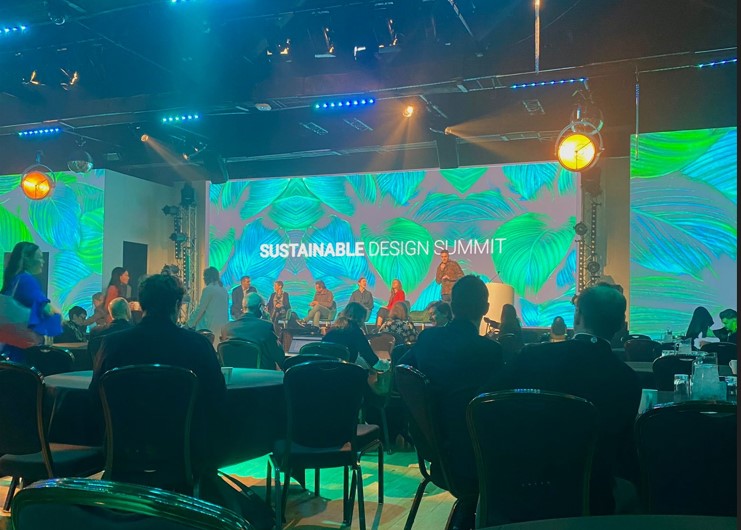4 learnings from Sustainable Design Summit

Everyone is talking about sustainability at the moment – and rightly so. Protecting our planet has become increasingly important in recent years, and every business in every sector has a social responsibility to play their part. No matter what role your organisation plays, even the smallest of changes help to move us, collectively, in the right direction.
The Sustainable Design Summit 2022, held in central London in late November, brought together brand owners, designers and suppliers from across hotel, cruise and aircraft interiors to talk about the challenge these industries are facing, and to guide each other on our journey towards a more sustainable future. Our Junior Designer, Megan King, was in attendance to join in with those discussions, and she came away with plenty of learnings.
Small changes make a big difference
Before anything else, it’s crucial that everyone is pulling in the same direction. That’s across industries, manufacturing departments, and individual teams. That requires making sure everyone is on the same page when it comes to the importance of building a more sustainable future. Arun Rana, Design Manager at Accor, was a keynote speaker at the event and explained the role of education in this process, and how a shift in personal culture leads to a shift in company culture. You will need to explain what you are doing and how you are going to do it when starting your sustainability journey, but just as important is explaining why.
A different perspective
When considering the construction of hotel, cruise and aircraft interiors, plastics feature heavily. It can therefore be easy to point the finger at the materials and claim that simply using more sustainably used parts will achieve a finished product that is better for the environment. That may be true, but the materials used – particularly in our products – are heavily regulated in the interests of passenger safety. They must past fire retardance tests, maintain their photoluminescence under certain duress, and pass a number of other safety certifications in order to serve their purpose.
What can be considered however, within the required safety protocols, is the weight of our products. Matt Round, Creative Chief Officer at Tangerine, spoke about how critical weight reduction is for the aerospace industry, and how environmentally friendly materials are not always the answer. This is already something we are working on – SSUL-X11, which we launched earlier this year, is the narrowest and lightest emergency exit floor path marking system on the market, creating weight savings of up to 36 kilograms per flight.
Considering the full product lifecycle
We can’t solely focus on the construction of products. Eventually, interiors will be updated and products that have reached the end of their lifecycle need replacing – and we must think about what happens to them once they are removed from the cabin. Katie-May Boyd, CMF Specialist at SeymourPowell, discussed the importance of an end-of-life supply chain for products to ensure they are disposed of, and where possible recycled, correctly. By considering this during the design process, products can be made in way that they can either be repurposed, or easily deconstructed in a way that allows for the recycling or repurposing of existing materials.
Working towards a common goal
An issue that reared its head time and time again at the event was the standardisation of what the industry is working towards. Sustainability means something different to each brand owner, designer, and supplier, and without a clearly defined goal which is supported by certification, their work will not have the same impact. Green Cabin Alliance have started working towards this within the aviation industry, and its important that others follow suit. With everyone trying to achieve the same goal, we will not only get there quicker, but also create a much larger impact.
It was fantastic to see that so many organisations have sustainability efforts on their radar, and to be involved in such fruitful, interesting, and engaging discussions on the topic. The aerospace industry, along with those from other sectors at the event, has a vital role to play in protecting the future of our planet, but it is only just starting to scratch the surface. We will continue to play our part in that.
